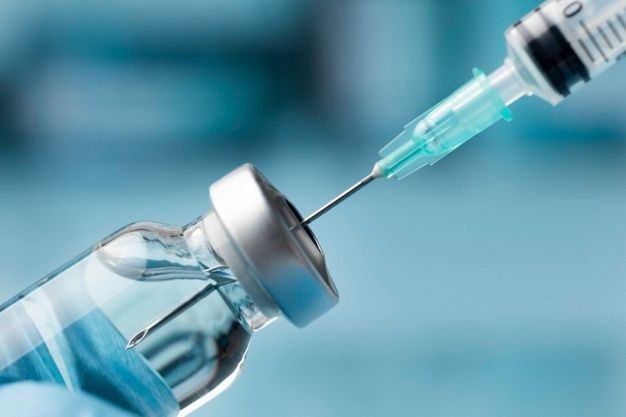
COVID-19: The Importance of a Booster Dose
Overall, primary doses of the COVID vaccine and boosters are still the most effective means of protection against COVID-related illness, hospitalization, and death. Experts can now confirm a gradual reduction in protection from initial vaccinations against mild and moderate sickness. Therefore, boosters are essential, especially during the Omicron spike.
Primary Vaccine Effectiveness Declines Over Time
COVID vaccines remain an essential first defense against serious illness and death from COVID-19. With the presence of Omicron and the likely emergence of new variants in the future, primary vaccines and boosters will provide the best protection.
According to the Centers for Disease Control and Prevention (CDC), vaccines approved for use in the United States include Pfizer/BioNTech and Moderna. The CDC recommends Johnson & Johnson’s Janssen for people who have suffered allergic reactions to the mRNA variations or have limited access to the other types.
Despite their capacity to reduce hospitalizations and severe illness, COVID vaccines’ effectiveness decreases over time, especially for people over 65. Recent research has found that the Pfizer/BioNTech and Moderna vaccines demonstrate only 10 percent effectiveness against Omicron infection 20 weeks after the second primary dose.
Importance of COVID Booster Shots
Due to the gradually decreased efficacy of initial COVID vaccines, booster shots can help individuals maintain their protection. Their development and distribution have been essential in slowing down the COVID-19 spread and safeguarding people against Omicron.
Clinical trial results suggest that a COVID booster increases immune responses if administered six months after the Pfizer/BioNTech or Moderna primary doses. Johnson & Johnson Janssen recipients benefit from the booster two months after the initial vaccine. People who have been fully vaccinated and experienced a weakening in their immune responses also need a booster dose to lower their COVID infection risk.
Despite the importance of COVID boosters, their effectiveness decreases over time. A United Kingdom study found that a booster shot is 75 percent effective against symptomatic infection two weeks after injection. However, the shot’s efficacy drops after just four weeks. At weeks 5-9, effectiveness is between 55 percent to 70 percent, and at 10 weeks, 40 percent to 50 percent.
Will Additional Boosters Be in Our Future?
In early January, Stephanie Bancel, CEO of Moderna, predicted that booster efficacy would continue to decrease in the coming months. She also stated that we would likely need a second booster to protect ourselves against COVID-19. Also, the need for booster shots could continue through the fall of 2022 and beyond. However, Bancel suggests that people who got the booster last fall will probably stay adequately protected through the coming spring.
Pfizer CEO, Albert Bourla, also predicts the need for boosters in the coming months, claiming that individuals will need a second booster about one year after their first one. Bourla further states that we might need this second booster sooner if Omicron proves potent enough against antibodies from previous vaccines.
How to Get the Booster
Individuals should add COVID booster shots to their preventive care regimen. The CDC provides recommendations for boosting depending on which primary vaccine people received. For instance, Pfizer/BioNTech recipients aged 12 years and older can get their booster five months after completing their initial two doses. While adults can also receive the Moderna booster if they prefer, teenagers between 12-17 who got the Pfizer primary vaccine should only get the Pfizer/BioNTech booster.
Moderna recipients at least 18 years of age can receive their booster at least five months after completing their two-dose primary series. They can also receive the Pfizer/BioNTech booster.
Individuals who got the single Johnson & Johnson Janssen shot can get their booster if they are over 18 years old. These individuals need to wait at least two months before getting boosted with either Pfizer/BioNTech or Moderna.
If you are unsure where to get an initial vaccine or booster, you can
- Call 1-800-232-0233
- Text your ZIP code to 438829, or
- Go to vaccines.gov for a vaccination location near you.
Remember to bring your vaccination card to your appointment. If you did not get a card after your first COVID shot, contact your state health department or the site of your first vaccination to learn how to get a card.
After receiving your booster, watch for side effects like redness, pain, or swelling at the injection spot. Other possible symptoms include chills, fatigue, fever, headache, muscle pain, or nausea. In most cases, side effects are not serious; they show that the body is building its defense against the coronavirus.
After getting your booster, consider signing into the CDC’s v-safe site to document your side effects. Setting up an account and entering your booster shot information can give you access to daily virtual safety check-ins. It can also provide the CDC with helpful information for tracking the effects of COVID vaccines and boosters.
Research and materials for this article were compiled, written, and distributed on behalf of the National Public Health Information Coalition. The views and opinions expressed in this blog are those of the various authors and do not necessarily reflect the official policy or position of the National Public Health Information Coalition or its members.
References

